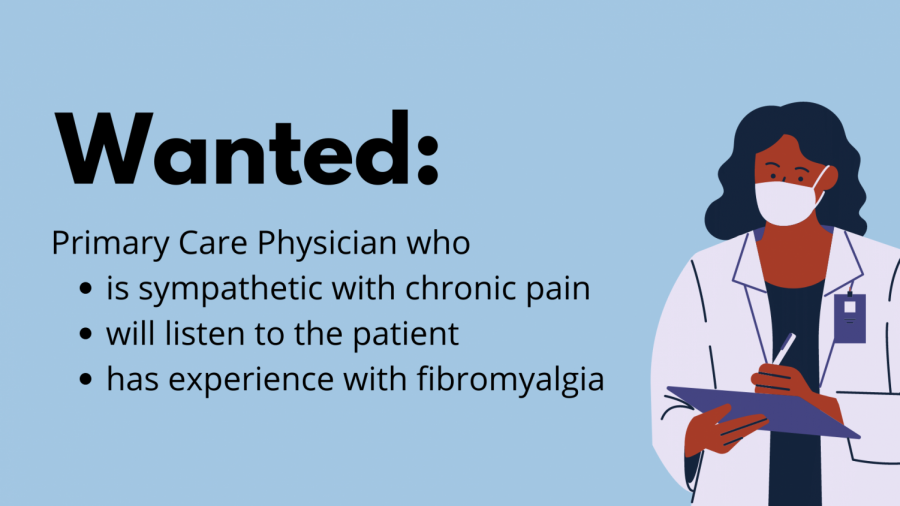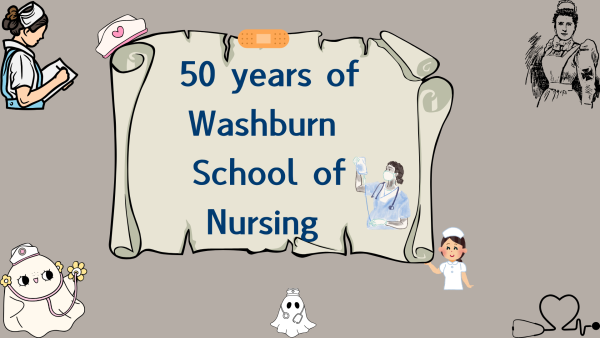Healthy but hurting: A doctor’s appointment gone wrong
It is vital that medical professionals who treat patients with fibromyalgia have sympathy and understanding for what the patient is going through. It is also important for the medical professional to be willing to listen to the patient.
Last week I had to deal with something that I had never experienced before and never thought I would have to experience.
It started with a visit to my primary care physician. Going into the appointment, I knew that my doctor wanted to take away my muscle relaxer prescription, which I had been taking for about a year and a half.
When I first started taking a muscle relaxer, specifically Tizanidine, I used it only when needed. Granted, this was still a few times a week due to muscle tension and headaches. It was at a visit with my nurse practitioner where it was recommended I start taking it every night since I had tension every night. Of course, on the few nights where I felt okay, I wouldn’t take it, but those nights were in short supply.
My nurse practitioner told me that she took the same muscle relaxer that I had every night for jaw tension. She assured me that it was not addictive and not habit-forming, so I began taking it every night as she recommended.
Fast forward months later to my recent appointment with my doctor. She told me she wouldn’t prescribe the muscle relaxer anymore because it was not approved for long-term use. Instead, she wanted to give me a sleeping pill.
I tried to explain to her that sleep wasn’t my issue. I was usually so tired by the end of the day that I could fall asleep without any problem. Tension and pain, however, were an issue.
She ignored what I said and tried to tell me that the muscle relaxer only helped because it made me sleep. I argued, but it wasn’t any use. She also took issue with the fact that my tension came back every day. In her mind, the muscle relaxer didn’t really help because its effects were somewhat short-lived and my tension and pain would just come back.
No one knows my body better than myself. At that appointment, my doctor acted as though she knew my body better than I did.
The appointment only went downhill from there. She started proposing that there was something internally wrong that was causing my pain. I tried to tell her that I had extensive tests, including x-rays and MRIs within the last few years that all came back normal. Additionally, I had recently been to Mayo Clinic and had an extensive workup, all of which came back perfectly normal as well.
The last two years of my life have included a lot of lab work, imaging and other medical procedures. The results of these tests have all proved that there is nothing physically wrong with me, hence the name of my column: Healthy but hurting.
Fibromyalgia is a difficult disease in that it is only diagnosed by ruling everything else out. You would think that if there was something wrong with me, one of my many doctors would have figured it out by now.
She started heading in a different direction and suggested things such as physical therapy, exercise and stretching. These things are all great, but I have tried them all before and they do not really help with my pain.
I explained that these therapies were ineffective for the treatment of my pain, yet my doctor continued on her tirade.
I paid a $35 copay just to sit in an office for an hour and have my doctor ignore everything I was saying.
After arguing about therapies, my doctor suggested that perhaps emotional stress was my issue. I think it was at this point she finally realized I was crying and upset, although she didn’t say anything to me about it.
My doctor also tried to blame my pain and tension on being a student and having to carry a backpack. The majority of college students can carry a backpack without any pain and it is a necessity for me to carry a backpack on campus.
At some point she brought up two medications that are approved for fibromyalgia, Lyrica and Savella. I told her about the side effects I had experienced on a similar medication, Cymbalta, and how I didn’t want to get stuck taking long-term medication that would just make me feel bad. On top of this, these medications are usually very difficult to wean off of, as was my experience with Cymbalta.
I could go on and on about how my doctor ignored, criticized and even gaslighted me, but I think you get the idea.
I had never felt so unheard or put down by a medical professional. By the end of the appointment, I had made up my mind that I would get a new primary care physician.
No one who experiences chronic pain should have to experience what I experienced that day. My pain is just as real as someone with a broken bone, even if you can’t see it.
It is easy for people to brush off or belittle other people’s invisible illnesses because they can’t truly understand what someone who deals with it is going through. I would expect something like what I experienced from a non-medical person, but not a medical professional.
This is my call to action: practice empathy, understanding and grace for those who deal with chronic pain, because it is far too easy to criticize and ignore their pain. For those who suffer from chronic pain: don’t be afraid to advocate for yourself. You know your body better than anyone else.
Edited by: Kyle Manthe
Edited by: Ellie Walker
Your donation will support the student journalists of Washburn University. Your contribution will allow us to purchase equipment and cover our annual website hosting costs.















